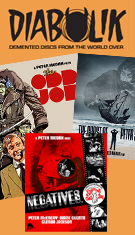
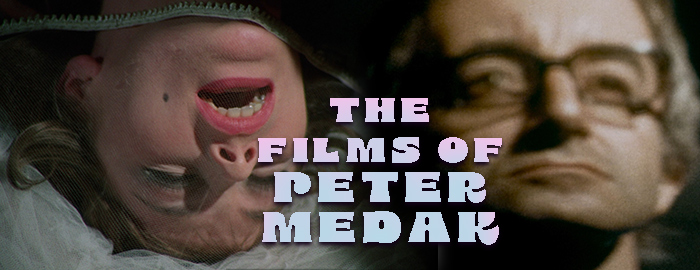


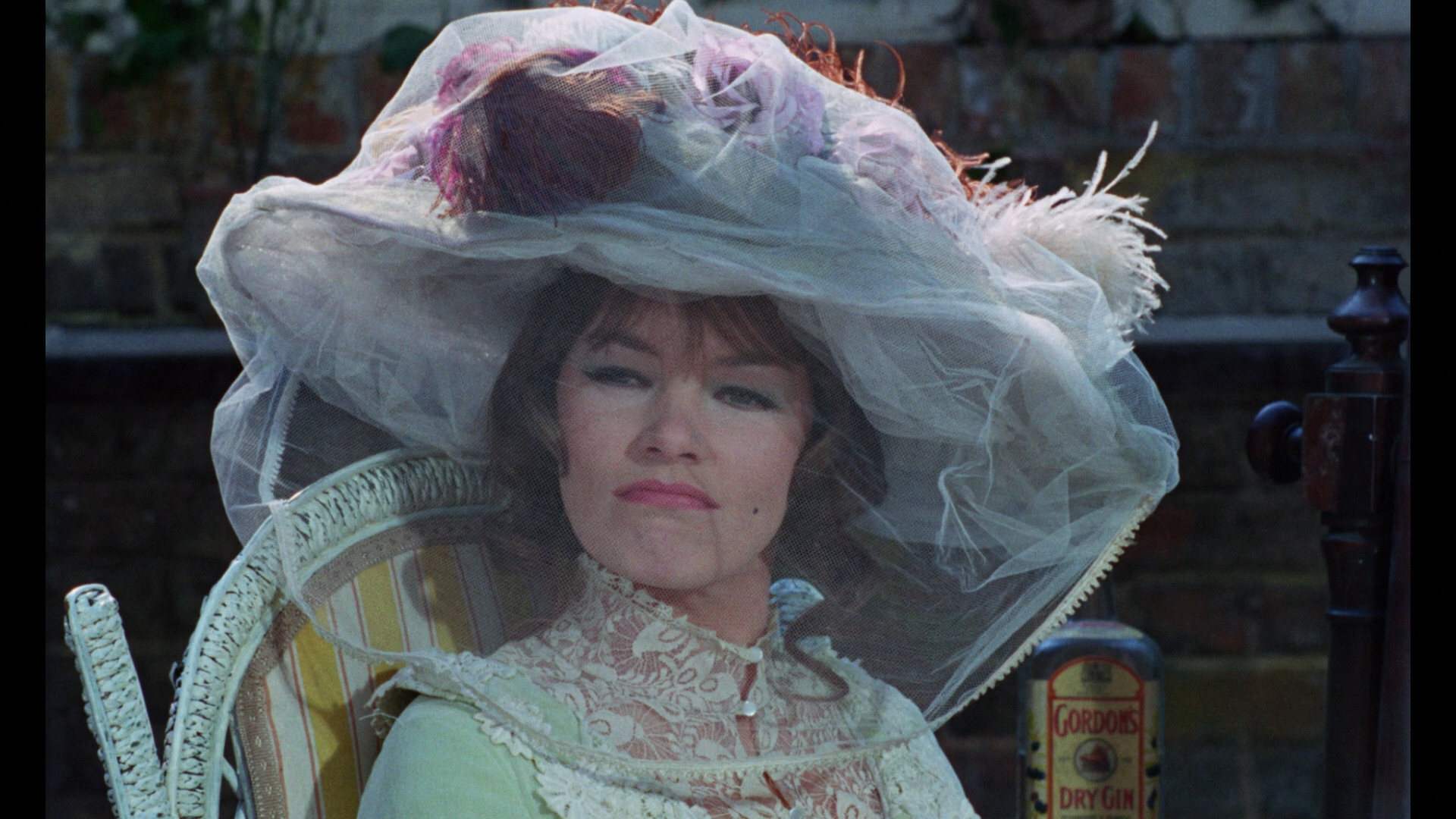 boast a more varied or unpredictable career than Peter Medak, a Hungarian-born English filmmaker who gave us one of the
boast a more varied or unpredictable career than Peter Medak, a Hungarian-born English filmmaker who gave us one of the 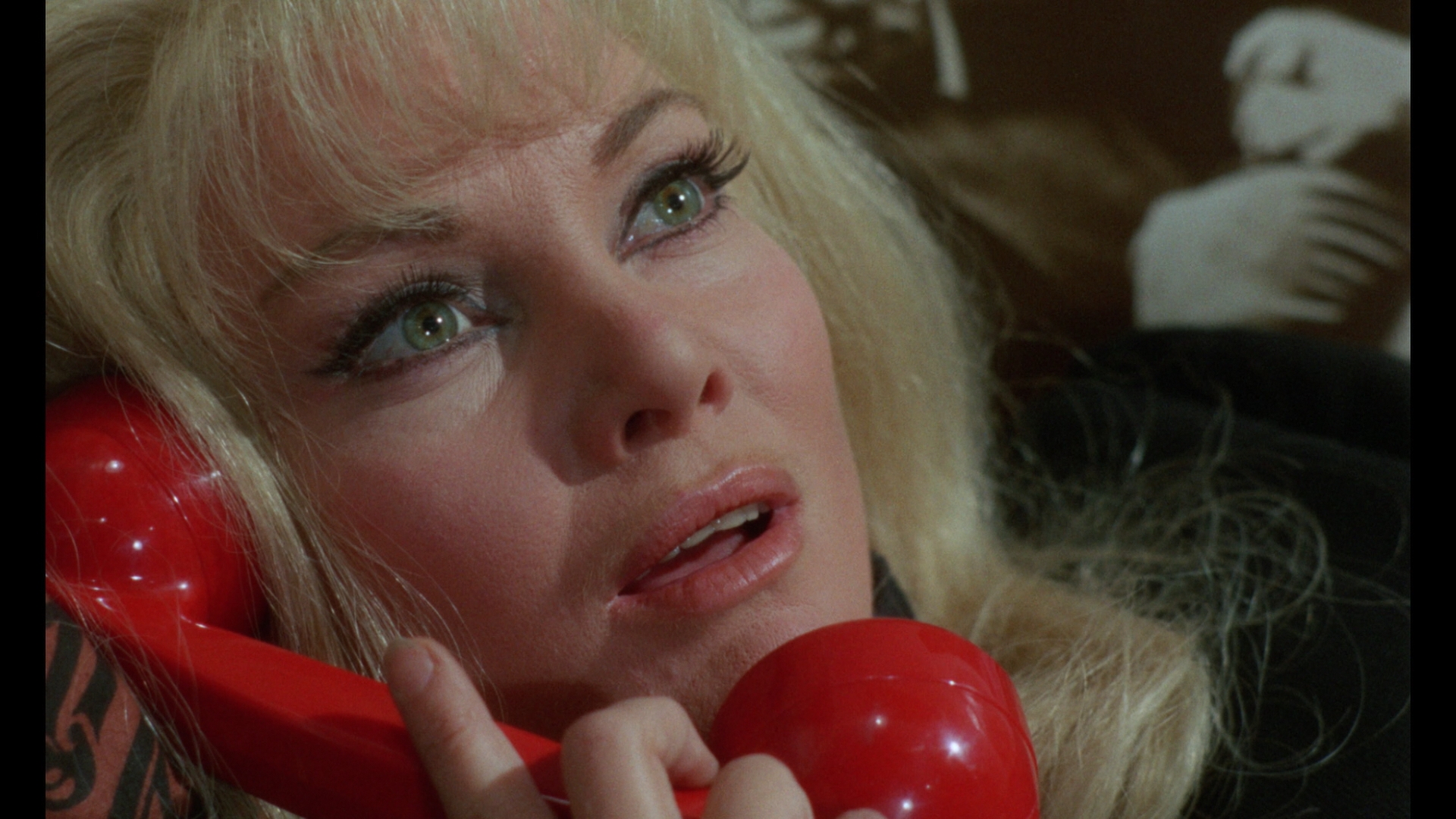 screen's greatest ghost stories (The Changeling), one of the great cult black comedies (The Ruling Class), three of the best late 20th-century British crime films (Romeo Is Bleeding, The Krays and Let Him Have It), and... Species II. Along with his copious TV work, his major films have been easy to see for decades but several have remained under the radar despite their prominent cast members. Addressing that oversight are three Blu-ray releases from Severin Films in 2025, each packed with extras explaining how the projects came to be and they roles they played in his diverse and fascinating career.
screen's greatest ghost stories (The Changeling), one of the great cult black comedies (The Ruling Class), three of the best late 20th-century British crime films (Romeo Is Bleeding, The Krays and Let Him Have It), and... Species II. Along with his copious TV work, his major films have been easy to see for decades but several have remained under the radar despite their prominent cast members. Addressing that oversight are three Blu-ray releases from Severin Films in 2025, each packed with extras explaining how the projects came to be and they roles they played in his diverse and fascinating career. 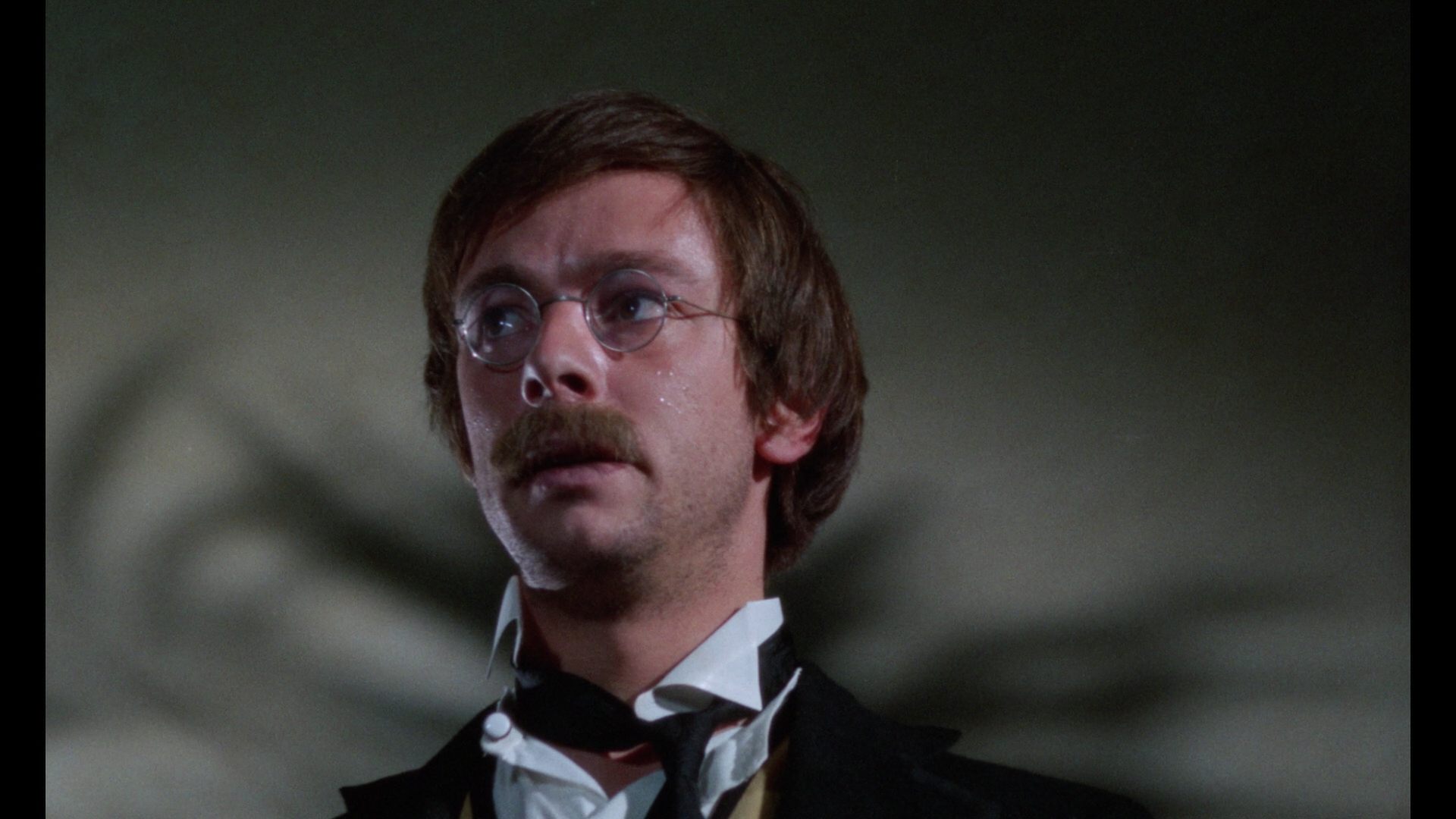 Crippen and the multiple women in his life. A new boarder, German photographer Reingard (The Wicker Man's
Crippen and the multiple women in his life. A new boarder, German photographer Reingard (The Wicker Man's 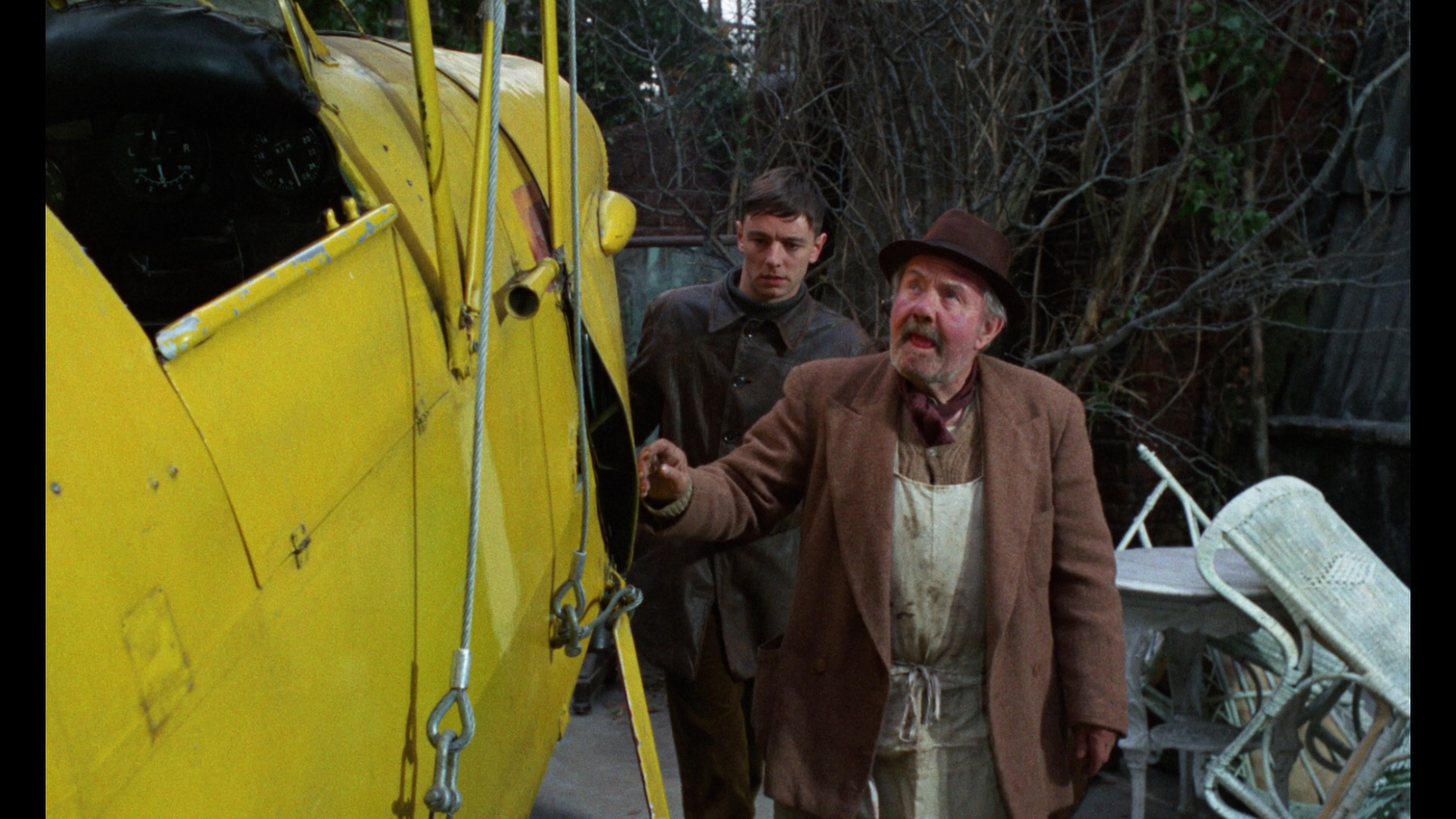 Cilento), becomes intrigued by their shenanigans and insinuates herself by steering their games into acting as Baron von Richtofen, a.k.a. The Red Baron, though nobody dresses up as Snoopy. Of course, this change in direction proves to be a very unwise one as the sexual triangle turns even more dangerous.
Cilento), becomes intrigued by their shenanigans and insinuates herself by steering their games into acting as Baron von Richtofen, a.k.a. The Red Baron, though nobody dresses up as Snoopy. Of course, this change in direction proves to be a very unwise one as the sexual triangle turns even more dangerous.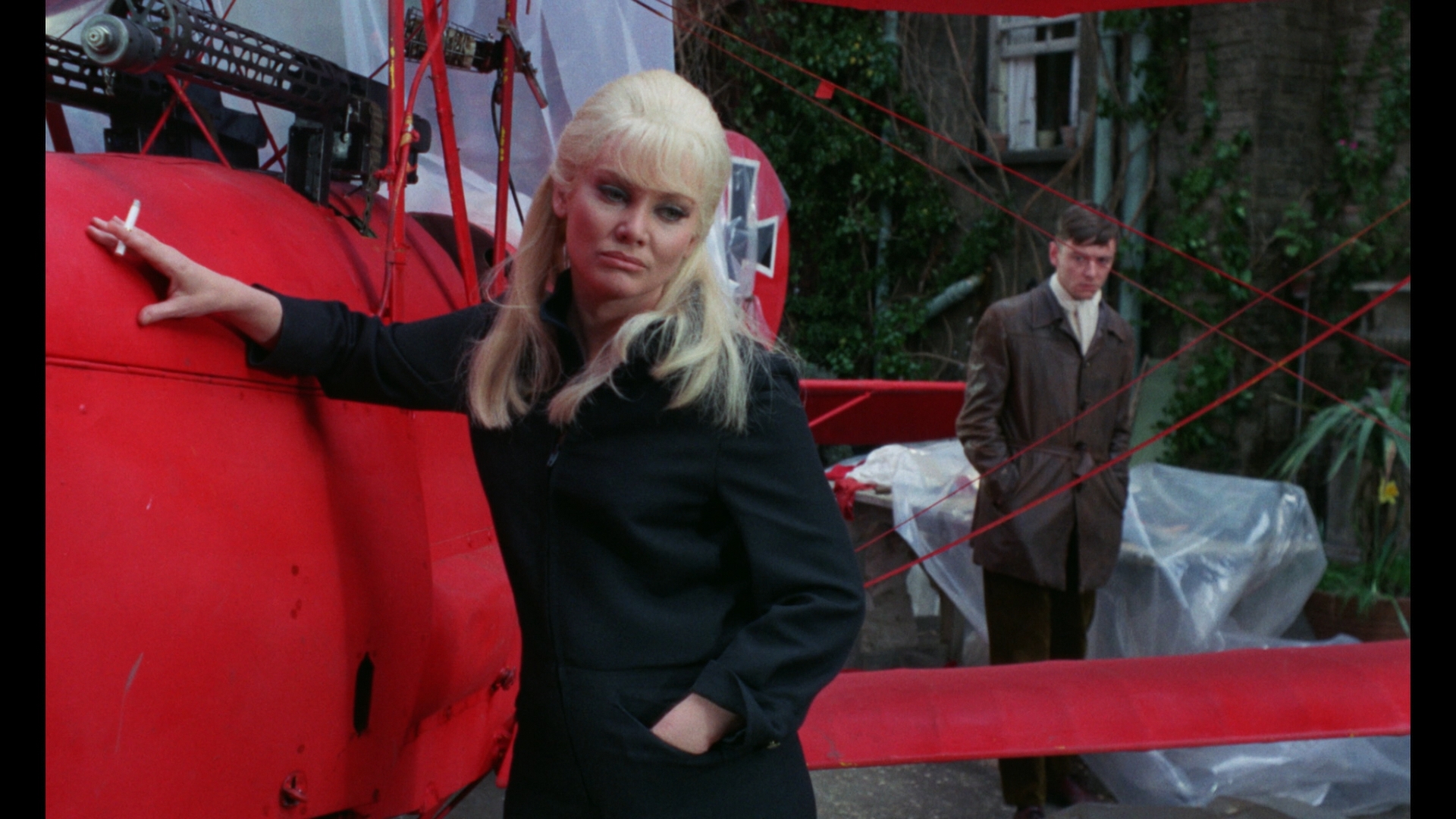 thin nature of the original mix, with optional English SDH subtitles provided. The late Lee Gambin is present for two extras here,
thin nature of the original mix, with optional English SDH subtitles provided. The late Lee Gambin is present for two extras here, 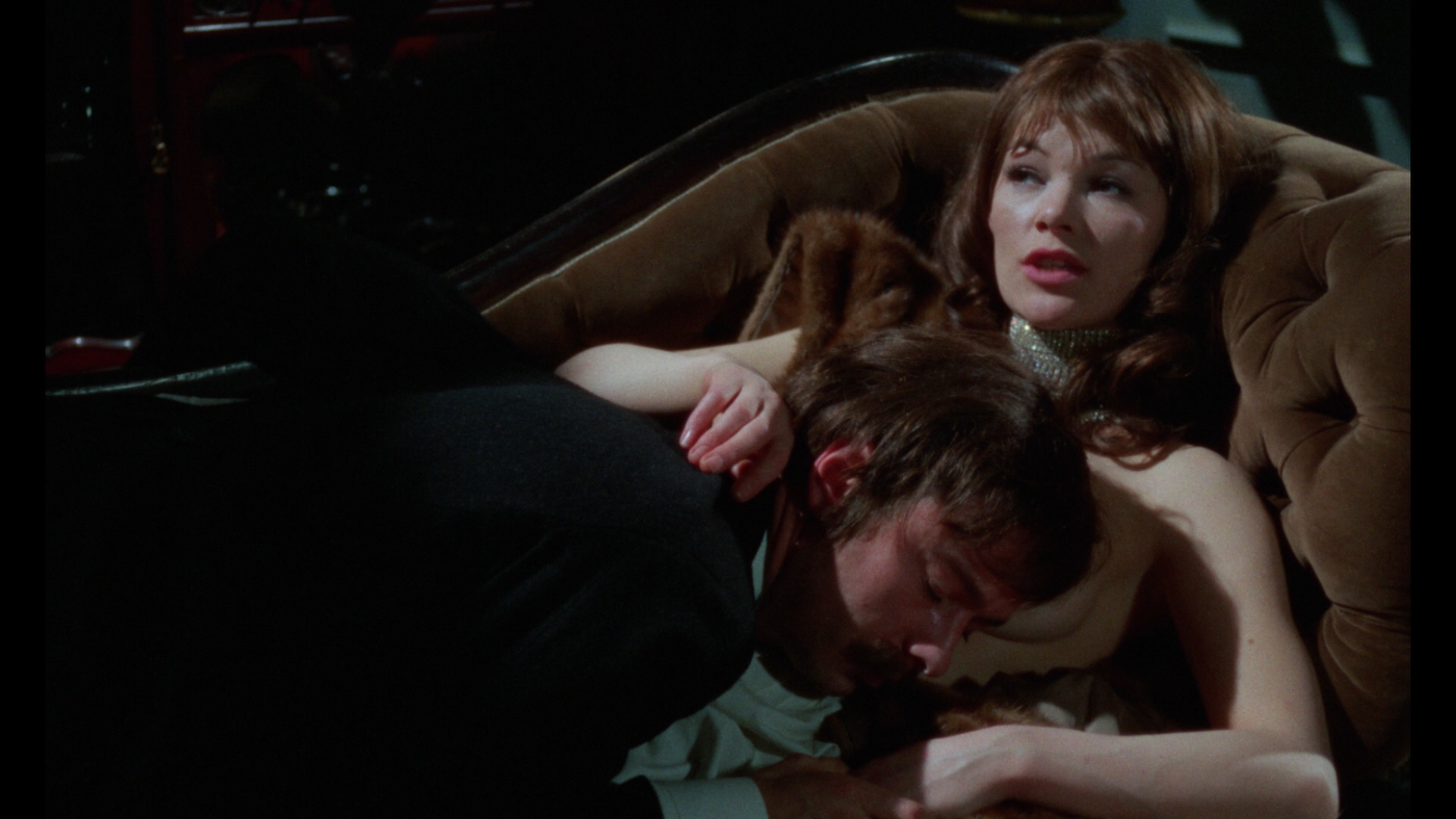 an extensive audio interview with Medak about his early life and career and a video essay, "Glenda Jackson: Working Class Wonderland" (13m28s), covering her unflinching and relatable approach to her craft in a manner that made her a captivating presence for decades (including a nice tie-in with Carol Burnett). A new audio commentary by Tim Lucas begins with the film's U.S. distribution and its curious placement at a turning point in the ratings system, then goes into an extensive analysis of its role playing, the short novel source, its place in a transitional period in British cinema, and the backgrounds of its major participants. In "Role Playing" (5m18s), McEnery briefly looks back at his character, his warm relationship with Medak that continued long after, and the hands-off approach he got for his performance. In "Positives from Negativeland" (15m43s), Medak pores through his production albums from his early films including this one and reminisces quite a bit along the way about his colleagues and trivia like the original choice of Claude Chabrol to make Negatives. Finally an intervieww tih Dr. Claire Smith (23m45s), Historic Collection Curator of The Metropolitan Police Museum, delivers a fascinating account of the details and odd quirks of the real, grisly Dr. Crippen case and the people involved who captured the public's imagination.
an extensive audio interview with Medak about his early life and career and a video essay, "Glenda Jackson: Working Class Wonderland" (13m28s), covering her unflinching and relatable approach to her craft in a manner that made her a captivating presence for decades (including a nice tie-in with Carol Burnett). A new audio commentary by Tim Lucas begins with the film's U.S. distribution and its curious placement at a turning point in the ratings system, then goes into an extensive analysis of its role playing, the short novel source, its place in a transitional period in British cinema, and the backgrounds of its major participants. In "Role Playing" (5m18s), McEnery briefly looks back at his character, his warm relationship with Medak that continued long after, and the hands-off approach he got for his performance. In "Positives from Negativeland" (15m43s), Medak pores through his production albums from his early films including this one and reminisces quite a bit along the way about his colleagues and trivia like the original choice of Claude Chabrol to make Negatives. Finally an intervieww tih Dr. Claire Smith (23m45s), Historic Collection Curator of The Metropolitan Police Museum, delivers a fascinating account of the details and odd quirks of the real, grisly Dr. Crippen case and the people involved who captured the public's imagination. 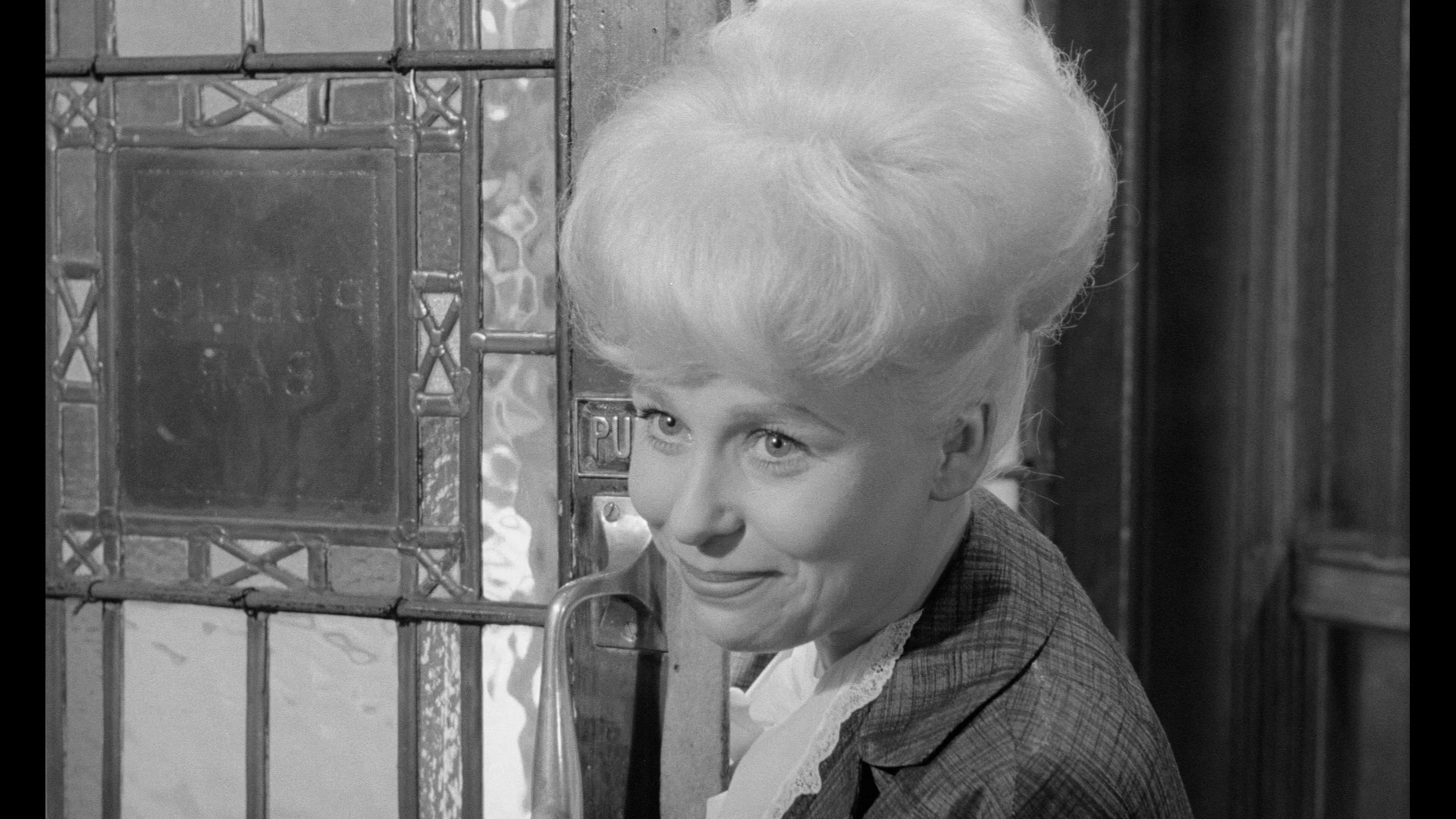 British with a slew of accents and colloquialisms that will necessitate the subtitle button on your remote, it's a cute time
British with a slew of accents and colloquialisms that will necessitate the subtitle button on your remote, it's a cute time 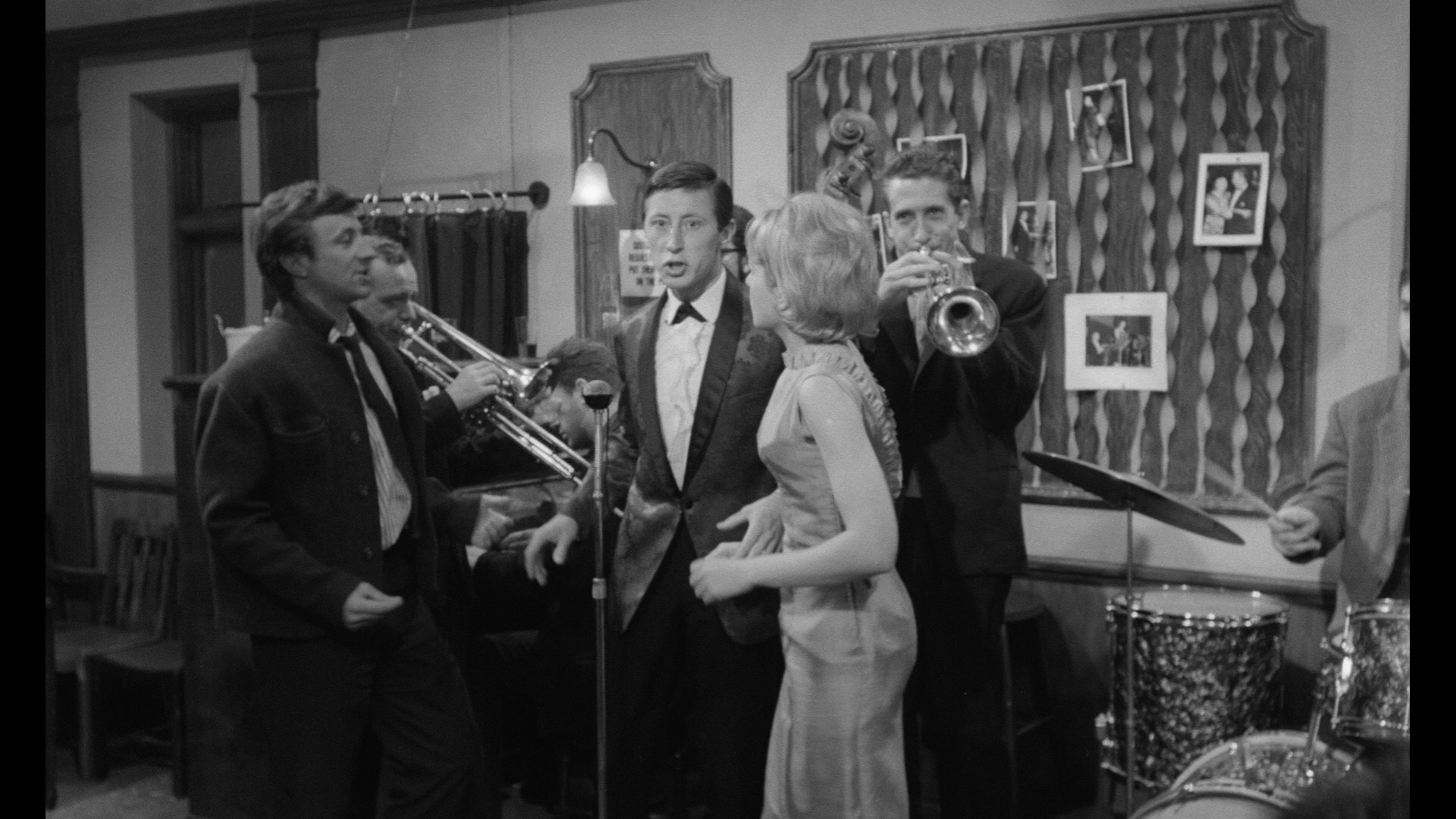 capsule starring Barbara Windsor as Maggie, whose husband Charlie (James Booth) comes back from a long stretch at sea to find that she's moved out of their now-demolished home and taken up with cabbie Bert (George Sewell) with a baby who could be from either man. As Charlie tries to track her down, th story spins in a number of absurd directions providing little showcases for a slew of familiar faces like Murray Melvin (who reteamed with Windsor in Ken Russell's The Boy Friend), Roy Kinnear, Barbara Ferris, Victor Spinotti, Peggy Ann Clifford, and many more. Shot in very crisp black-and-white, the film transcends its stage origins by capturing the feel of a neighborhood block at that point in time and is included here because Medak served as assistant director. The 4K-sourced scan from StudioCanal looks gorgeous here, accurately framed at 1.66:1 and featuring a mint DTS-HD MA 2.0 English track with those essential subs provided. Kremer turns up here again carrying the vast majority of a commentary track focusing a great deal on Littlewood's achievements, with occasional interjections from Medak about his memories from the set. In "East End Manifesto" (19m3s), Peter Rankin, friend and biographer of Littlewood, shares his memories of the artist via anecdotes about her wrangling the local challenges of the performing arts business, while a BFI Q&A with Windsor and Melvin (38m11s) is a very funny treat with the pals and frequent colleagues chatting about the production including "every character actor in London" being involved and the presence of the Krays themselves (appropriately for a Medak release!) on the set. A separate 10m20s solo interview with Melvin goes into more detail about Windsor's rapport with the director as well as the Krays, followed by a thorough locations featurette with Richard Dacre (15m7s) and the theatrical
capsule starring Barbara Windsor as Maggie, whose husband Charlie (James Booth) comes back from a long stretch at sea to find that she's moved out of their now-demolished home and taken up with cabbie Bert (George Sewell) with a baby who could be from either man. As Charlie tries to track her down, th story spins in a number of absurd directions providing little showcases for a slew of familiar faces like Murray Melvin (who reteamed with Windsor in Ken Russell's The Boy Friend), Roy Kinnear, Barbara Ferris, Victor Spinotti, Peggy Ann Clifford, and many more. Shot in very crisp black-and-white, the film transcends its stage origins by capturing the feel of a neighborhood block at that point in time and is included here because Medak served as assistant director. The 4K-sourced scan from StudioCanal looks gorgeous here, accurately framed at 1.66:1 and featuring a mint DTS-HD MA 2.0 English track with those essential subs provided. Kremer turns up here again carrying the vast majority of a commentary track focusing a great deal on Littlewood's achievements, with occasional interjections from Medak about his memories from the set. In "East End Manifesto" (19m3s), Peter Rankin, friend and biographer of Littlewood, shares his memories of the artist via anecdotes about her wrangling the local challenges of the performing arts business, while a BFI Q&A with Windsor and Melvin (38m11s) is a very funny treat with the pals and frequent colleagues chatting about the production including "every character actor in London" being involved and the presence of the Krays themselves (appropriately for a Medak release!) on the set. A separate 10m20s solo interview with Melvin goes into more detail about Windsor's rapport with the director as well as the Krays, followed by a thorough locations featurette with Richard Dacre (15m7s) and the theatrical 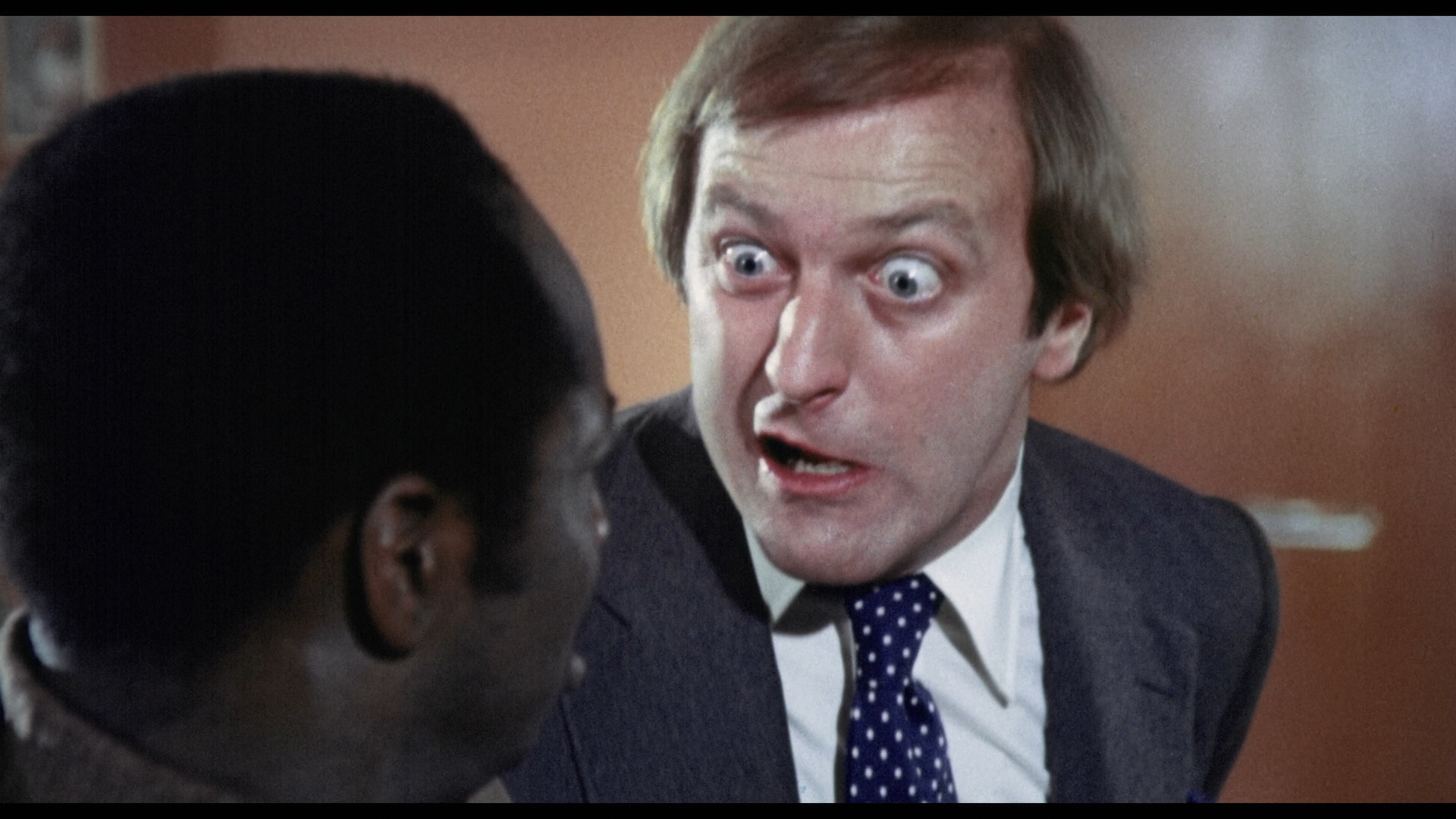
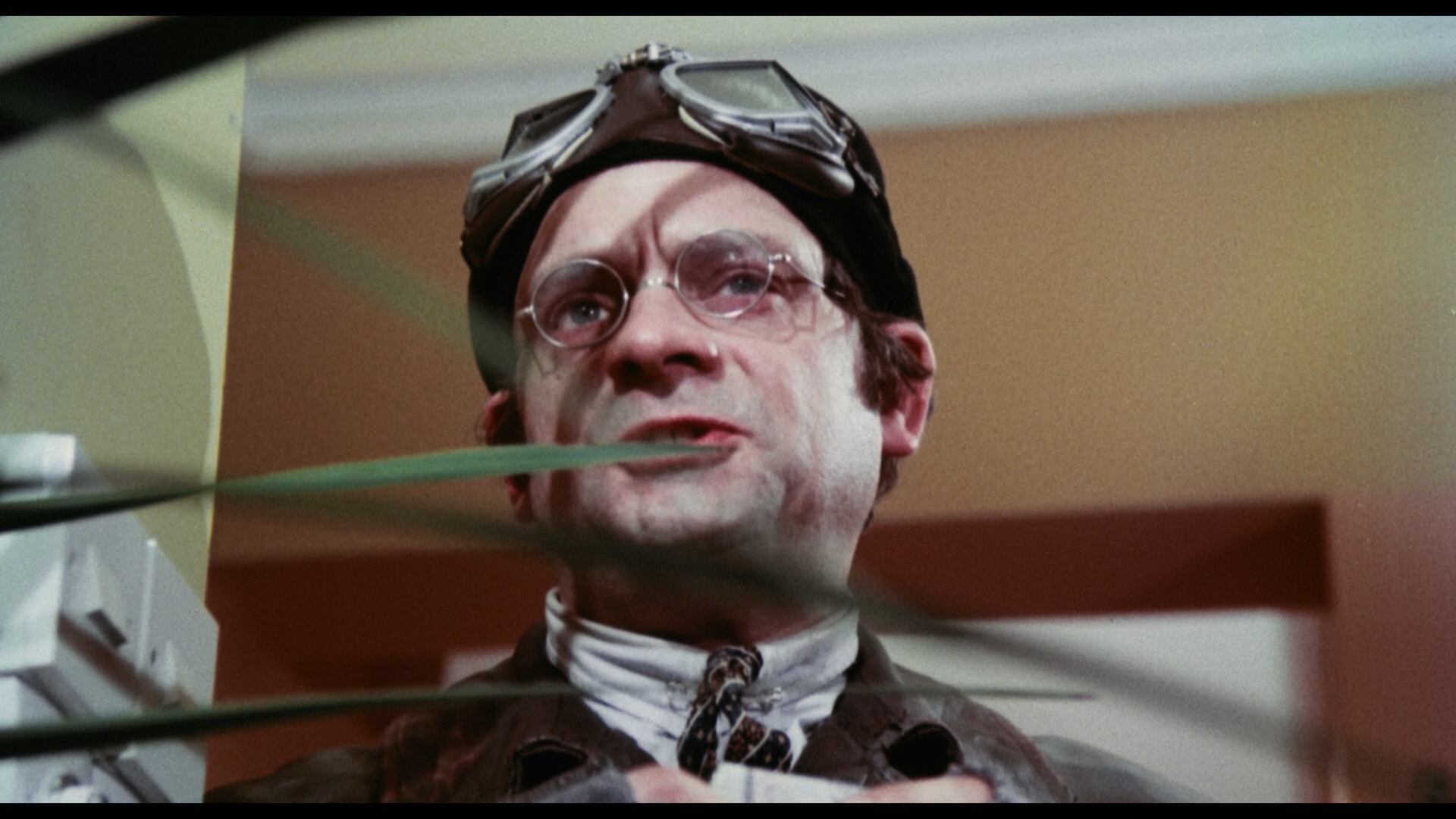 trailer.
trailer. 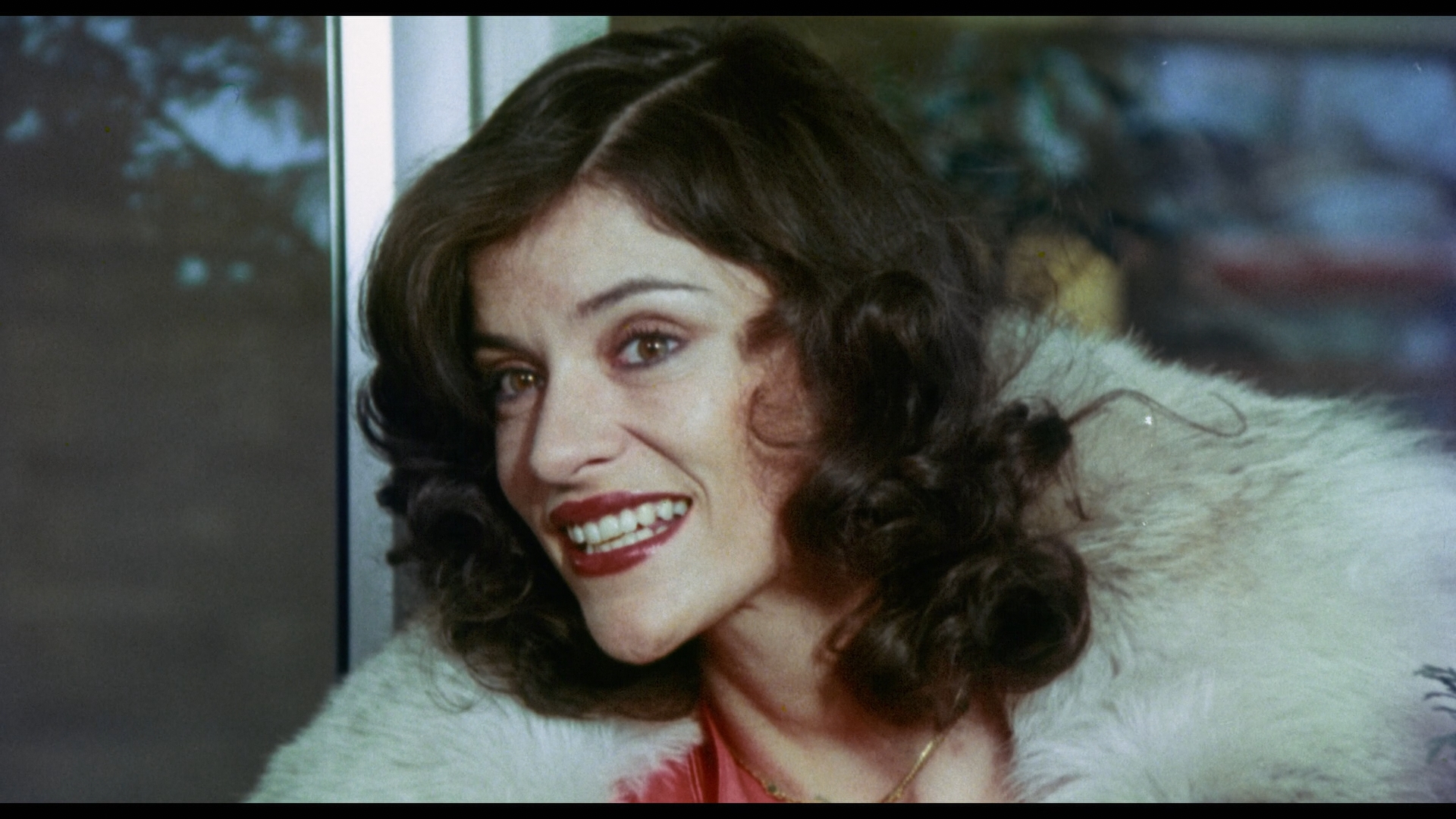 The DTS-HD MA 2.0 English mono track sounds fine as well, with optional English SDH subs included. Medak appears for a video intro (1m58s) and a sometimes inaudible audio interview track with the film covering the ups and downs of making the film including his complex feelings about Moon, working
The DTS-HD MA 2.0 English mono track sounds fine as well, with optional English SDH subs included. Medak appears for a video intro (1m58s) and a sometimes inaudible audio interview track with the film covering the ups and downs of making the film including his complex feelings about Moon, working 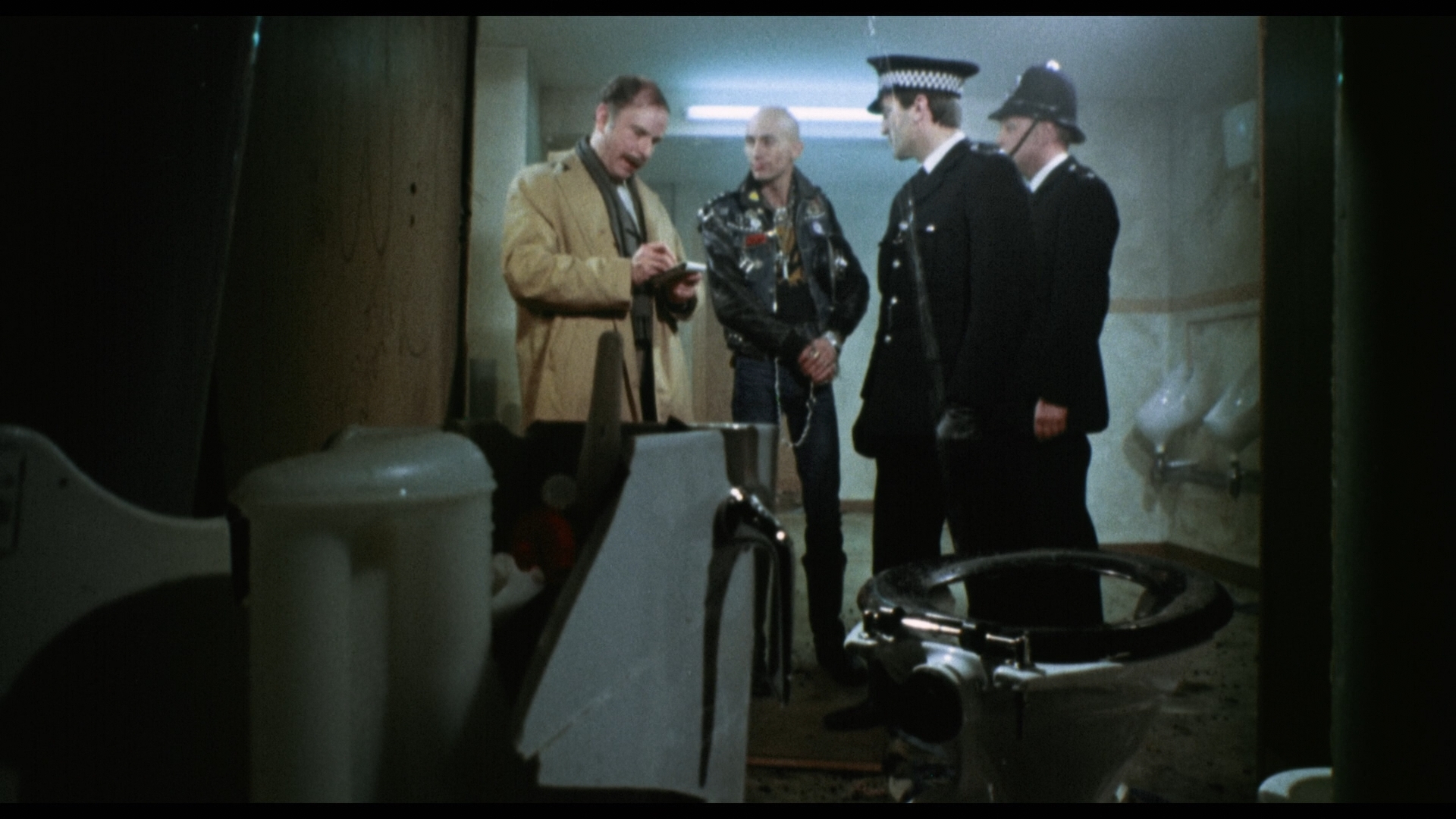 with Chapman, the financing, and the state of his career at the time after his disastrous prior film (more on that below). In "The Odd Job Men" (16m21s), Medak and a very funny Jason catch up over Zoom between L.A. and London walking down memory lane and ribbing each other, while writer Bernard McKenna appears in "The Unusual Work" (20m) explaining the process of writing the multiple versions of the film starting in 1968, his background in sketch comedy TV, and the way Chapman got involved with the script tailored to the changing times and talent. In "Producer, An Odd Job" (18m48s), co-producer Mark Forstater recalls being friendly with Terry Gilliam and others in the same circle starting in the late '60s, his work with the Pythons in the '70s including Monty Python and the Holy Grail, and the solo nature of the group's projects around this time including The Odd Job. O'Brien turns up next in "The Odd Batch" (13m47s) over Zoom from New Zealand chatting about his lucky career in the '70s, the stage smash that put him on the map before this, the wonders of being in London during the glam rock phase, and the route that led to him getting to act freaky in this film. In "The Naughty Neighbor" (7m58s), Carolyn Seymour chats about the fun she had on the production, the handling of the nudity required for her part (and for which Snoopy actually does make an appearance), and the importance of learning from history. Finally in "Most Peculiar Craft" (14m3s), Simon Williams is interviewed about his acting work in theater and on screen, his admiration for
with Chapman, the financing, and the state of his career at the time after his disastrous prior film (more on that below). In "The Odd Job Men" (16m21s), Medak and a very funny Jason catch up over Zoom between L.A. and London walking down memory lane and ribbing each other, while writer Bernard McKenna appears in "The Unusual Work" (20m) explaining the process of writing the multiple versions of the film starting in 1968, his background in sketch comedy TV, and the way Chapman got involved with the script tailored to the changing times and talent. In "Producer, An Odd Job" (18m48s), co-producer Mark Forstater recalls being friendly with Terry Gilliam and others in the same circle starting in the late '60s, his work with the Pythons in the '70s including Monty Python and the Holy Grail, and the solo nature of the group's projects around this time including The Odd Job. O'Brien turns up next in "The Odd Batch" (13m47s) over Zoom from New Zealand chatting about his lucky career in the '70s, the stage smash that put him on the map before this, the wonders of being in London during the glam rock phase, and the route that led to him getting to act freaky in this film. In "The Naughty Neighbor" (7m58s), Carolyn Seymour chats about the fun she had on the production, the handling of the nudity required for her part (and for which Snoopy actually does make an appearance), and the importance of learning from history. Finally in "Most Peculiar Craft" (14m3s), Simon Williams is interviewed about his acting work in theater and on screen, his admiration for 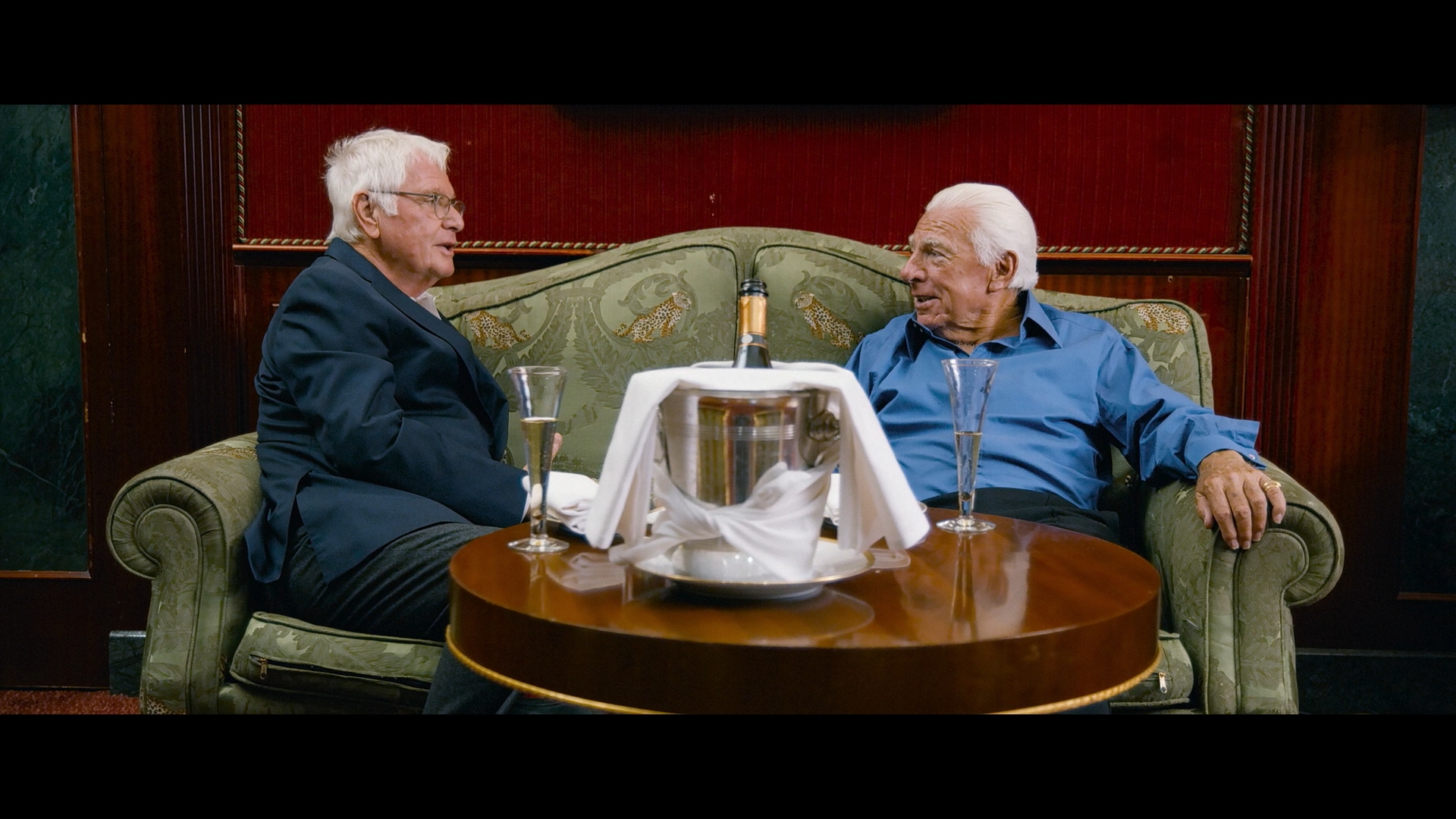 Medak's directorial process, and memories of
Medak's directorial process, and memories of 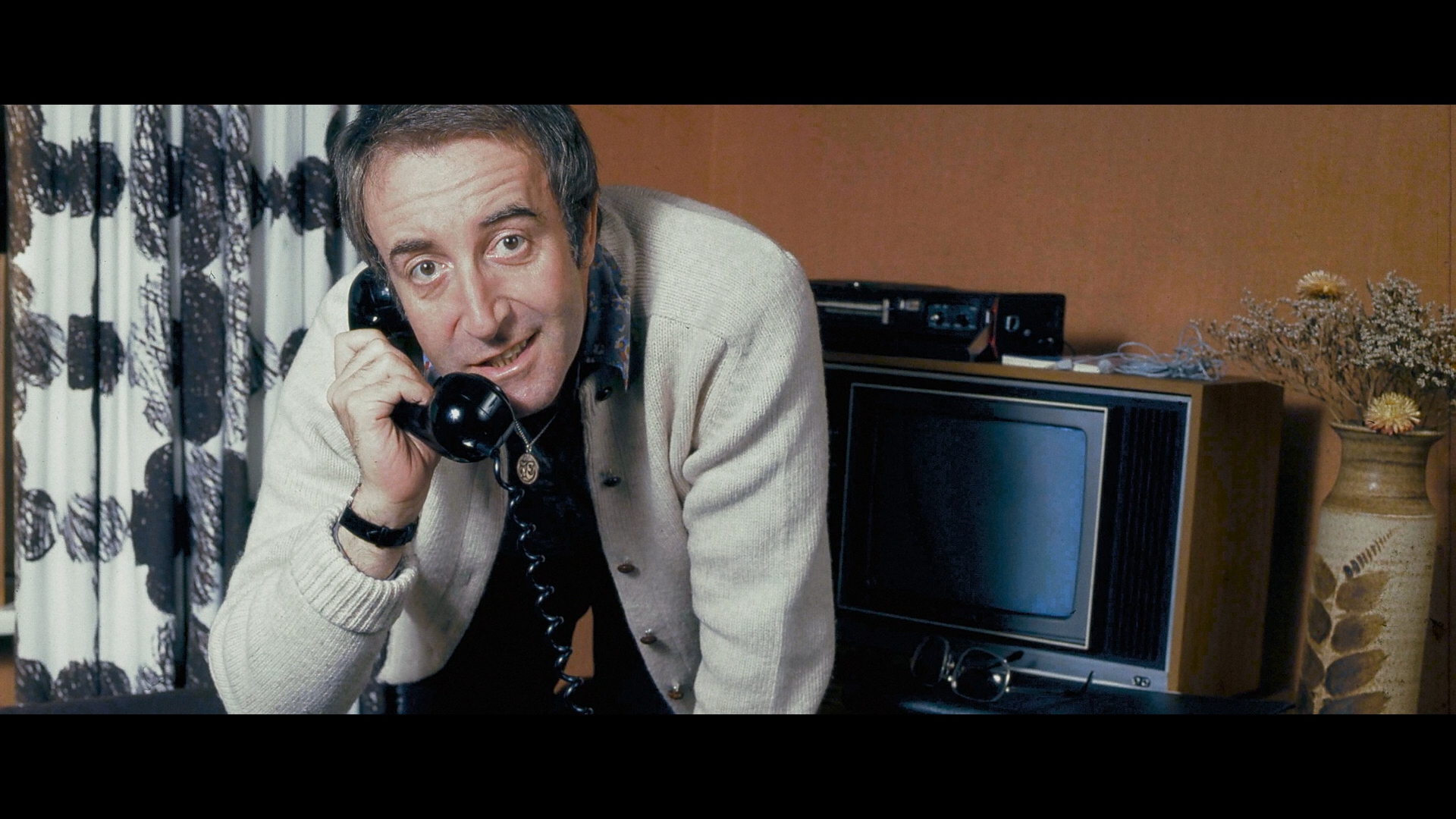 Chapman.
Chapman.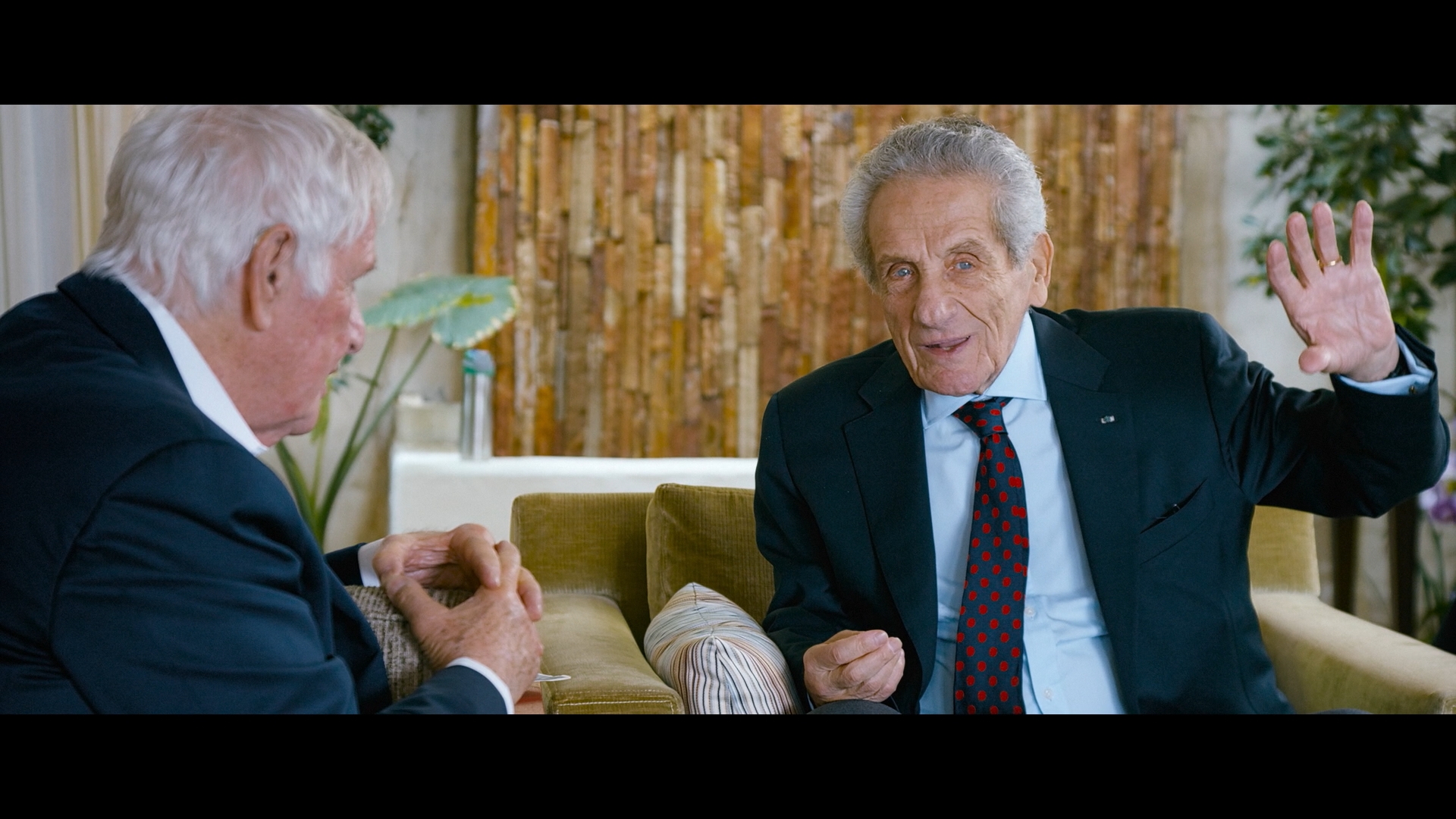 fascinating to watch in sequence after the prior two Severin Blu-rays here, showing Medak in the wake of a long, very prolific career still coming to terms with the one production and actor that still bruises him. As you'd expect for a production of
fascinating to watch in sequence after the prior two Severin Blu-rays here, showing Medak in the wake of a long, very prolific career still coming to terms with the one production and actor that still bruises him. As you'd expect for a production of 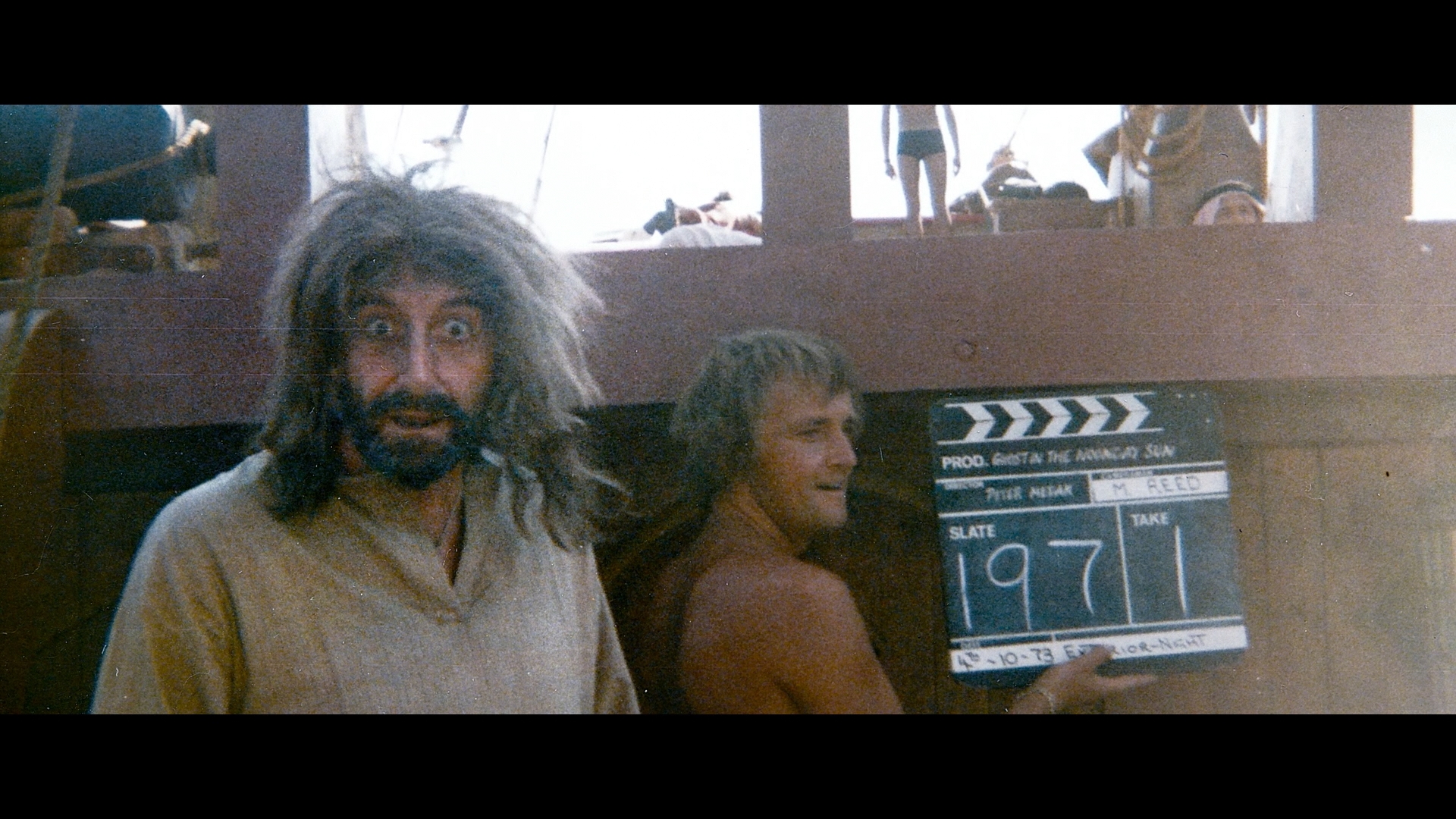 this vintage, it was shot digitally and looks pristine here with a fine DTS-HD MA 5.1 English track (plus a 2.0 one) with optional English subtitles. Again you get an audio interview here with Medak, conducted by Severin's David Gregory, that plays more or less as a commentary with a loose discussion of the documentary's genesis, evolution, and completion, touching on a number of showbiz names along the way and tying this in to some you might not expect. The very poignant "The Ghosts Inside the Scrapbook" (20m28s) is another Medak production album guide, here traversing everything from The Ruling Class to the early '80s with him speaking off the cuff about his positive and negative memories of that decade or so in his life. Finally you get the trailer and the intriguing, rather poetic visual essay "Love Left The Masquerade: Peter Medak’s Cinema Of Pretenders" (13m58s) with Kremer noting the lack of recognition for Medak overall as a filmmaker and threading the idea of deluded or detached characters enacting various personal charades throughout his major works (and yay for actually giving some props to the oft-maligned The Men's Club).
this vintage, it was shot digitally and looks pristine here with a fine DTS-HD MA 5.1 English track (plus a 2.0 one) with optional English subtitles. Again you get an audio interview here with Medak, conducted by Severin's David Gregory, that plays more or less as a commentary with a loose discussion of the documentary's genesis, evolution, and completion, touching on a number of showbiz names along the way and tying this in to some you might not expect. The very poignant "The Ghosts Inside the Scrapbook" (20m28s) is another Medak production album guide, here traversing everything from The Ruling Class to the early '80s with him speaking off the cuff about his positive and negative memories of that decade or so in his life. Finally you get the trailer and the intriguing, rather poetic visual essay "Love Left The Masquerade: Peter Medak’s Cinema Of Pretenders" (13m58s) with Kremer noting the lack of recognition for Medak overall as a filmmaker and threading the idea of deluded or detached characters enacting various personal charades throughout his major works (and yay for actually giving some props to the oft-maligned The Men's Club).![]()